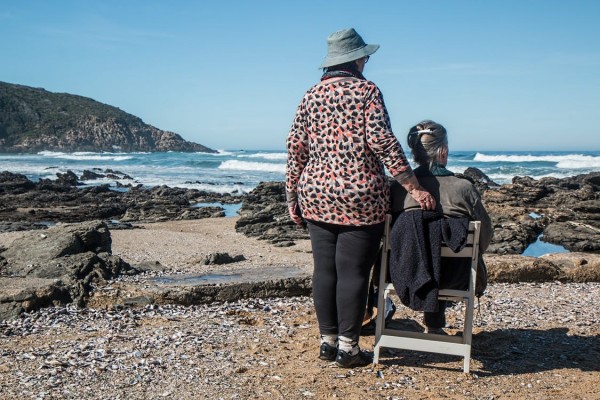For many caregivers, caring for an ageing parent or loved one is something they have always planned for, while others find themselves in such a position unexpectedly. It’s something many of us don’t consider or expect, but if you find yourself about to take on such a responsibility, it’s important that you know how to be the best caregiver you can be. Here’s 7 tips for being a better caregiver.

1. Start Early
If you’re not yet providing any sort of care, but know you will be soon, it’s best to start early. Starting slowly and performing only basic duties to begin with will help both you and your loved one transition into a more permanent arrangement.
If you ease your way into the role of caregiver, the change will be less dramatic and you will be prepared to take on more when the time comes.
2. Don’t do it alone
It’s important to understand what you can and can’t do. The person you’re caring for might need professional medical care for certain situations and there simply might be some other duties you’re unable to perform.
Don’t overwhelm yourself or endanger your loved one trying to understand medical equipment and requirements. You can find professional help on the Better Caring platform where you can hire carer workers and choose specifically what services they provide.
3. Consider financial aspects
As a caregiver, you will be sacrificing a lot of your own time and resources which might have financial implications for both you and your loved one. Understand what changes you both have to make and work out a plan to ensure this isn’t too disruptive.
For example, it’s common for ageing loved ones to downsize once they require care. This not only helps with finances but is an opportunity to find a living arrangement that can better suit their needs.
4. Collect Resources
There is an abundance of resources for caregivers and those needing care both online and through support services. These resources are often free or low cost and are helpful to have on hand, especially during the early stages.
You can even take classes and acquire certificates to become a better caregiver. Training classes and certificates for things like CPR can be greatly beneficial.
5. Stay Organised
Becoming a caregiver comes with a whole list of new responsibilities. Managing both your own and a loved one’s care and responsibilities can get stressful so it’s important to stay organised.
Having a clear, detailed schedule or calendar of important dates, appointments and activities, as well as a separate agenda for yourself, will help you be a better, more organised caregiver.
6. Take Care of Yourself
As a caregiver, you need to be constantly compassionate, caring and respectful. This can undoubtedly be draining at times so it’s important to keep your own health a priority. The need to show compassion all the time can lead to compassion fatigue.
It’s important to be caring and empathetic, but at times you will also need to be objective and have an unbiased view of the situation. Becoming overworked, overstressed or desensitised can have a negative effect on your relationship and you won’t be able to provide effective care.
7. Plan (far) ahead
Life can take unexpected turns and there may come a point where you are no longer capable of providing the care required. You must understand that this may happen, be able to see when you can no longer provide care and have a plan for the next step.
You should consult with doctors and any other professionals involved in your loved one’s care to ensure you understand what they require. Having a plan for when you can longer provide adequate care will give both you and your loved one peace of mind.
Becoming a caregiver is both demanding and rewarding, but it’s important that you feel confident in your duties and get professional help when needed. Both parties should be happy with the arrangement, and neither person’s health should be sacrificed.
This post comes from the TODAY Parenting Team community, where all members are welcome to post and discuss parenting solutions. Learn more and join us! Because we're all in this together.
